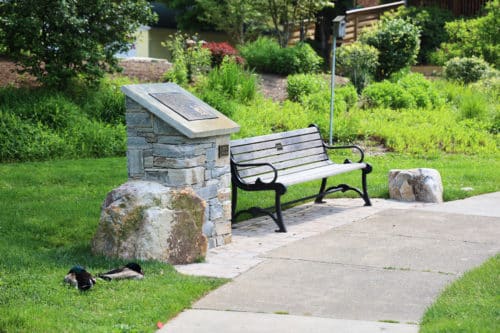This Downtown Walking Tour offers a look at some historic properties in downtown Blowing Rock. It was originally featured in the Blowing Rock Chamber of Commerce’s Visitor Map (some minimal updates have been made here). Take a leisurely walk around our charming downtown area. Begin at the Blowing Rock Chamber of Commerce – The Robbins House – and meander past historic B&Bs, unique restaurants and fascinating shops. Experience local lore and history within just a few blocks of Main Street. Structured in an easy-to-walk loop, it’s a great trail to follow and enjoy!
1. The Robbins House
(The Blowing Rock Chamber of Commerce)
132 Park Avenue
Built in 1903 by Grover Robbins, Sr., the “Father of Tourism in the High Country.”The Robbins family started Tweetsie Railroad and Hound Ears Club, and gave the land to the town for Memorial Park. The building is constructed of chestnut wood before there was “wormy chestnut.”
The next building is across Park Avenue on the corner of Main Street and Park Avenue.
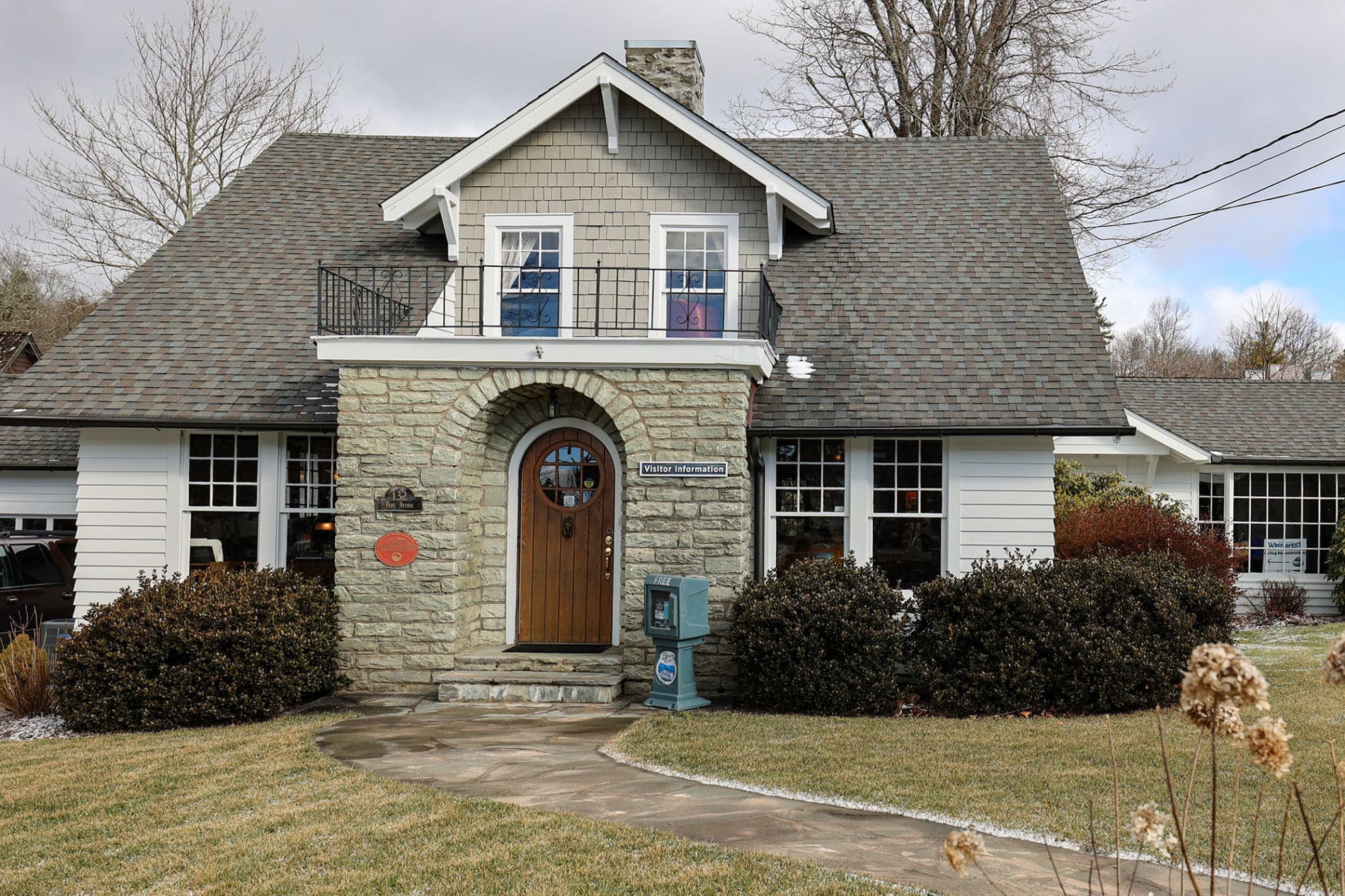
2. Community Library/Community Club
1022 Main Street
Built in 1923, the building has handsome native stone architecture. Miss Annie Cannon of the Cannon Mills family was a major donor to the building fund. May have housed the Community Club since its inception.
Continue south on Main Street toward the park.

3. Memorial Park
Main Street
Deeded in 1945 on land donated by the Robbins family, Memorial Park was built in remembrance of the veterans of World War I and World War II.
Continue south on Main Street.
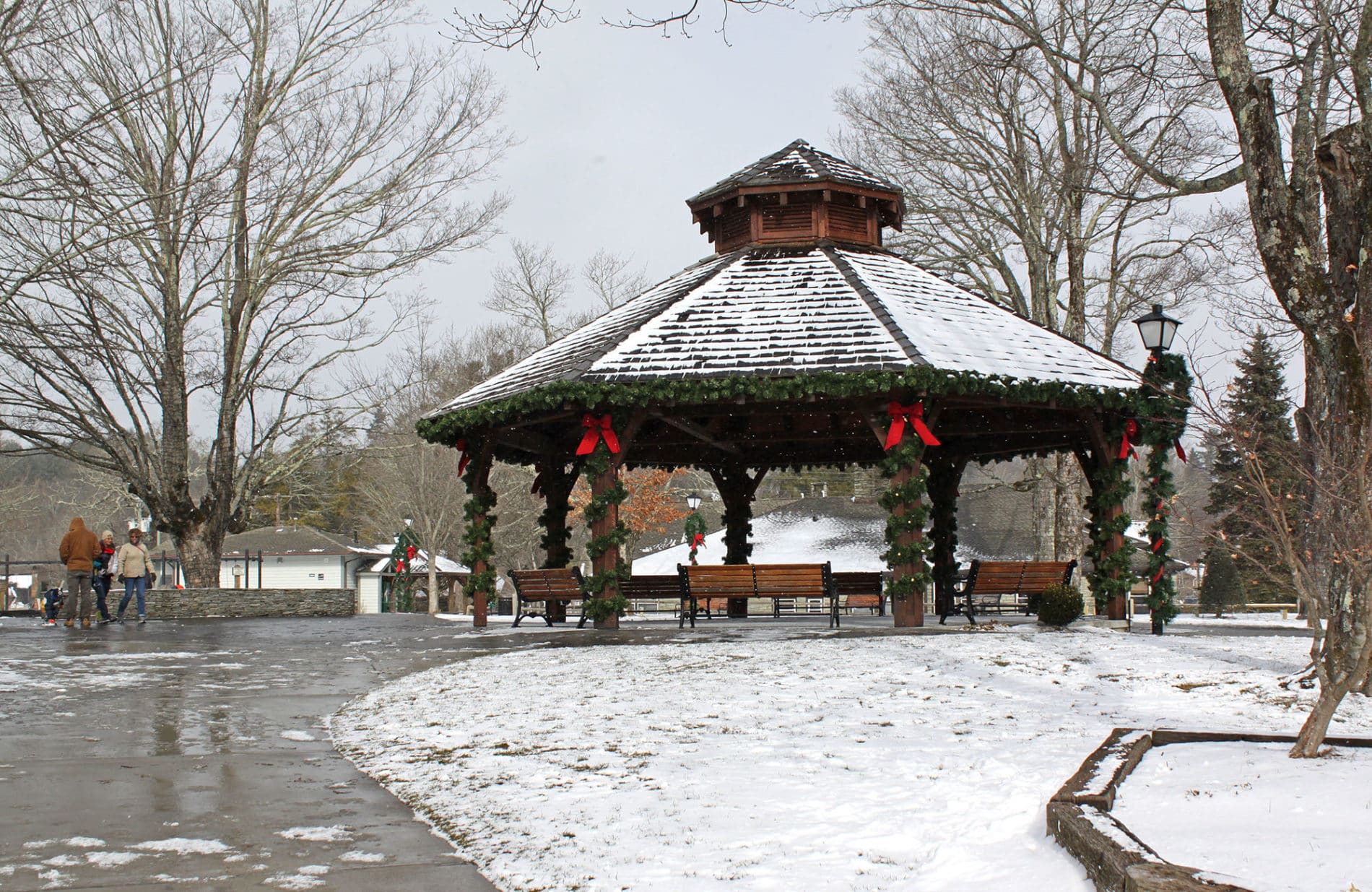
4. 1888 Museum
1094 Main Street
This tiny building is the last remaining cottage of the Watauga Hotel and is one of the oldest in Blowing Rock. Maintained by the Blowing Rock Historical Society, this building is open for self-guided tours every day. Visitors get a glimpse of what vacation loding looked like in the early days of the town.
Continue south on Main Street.
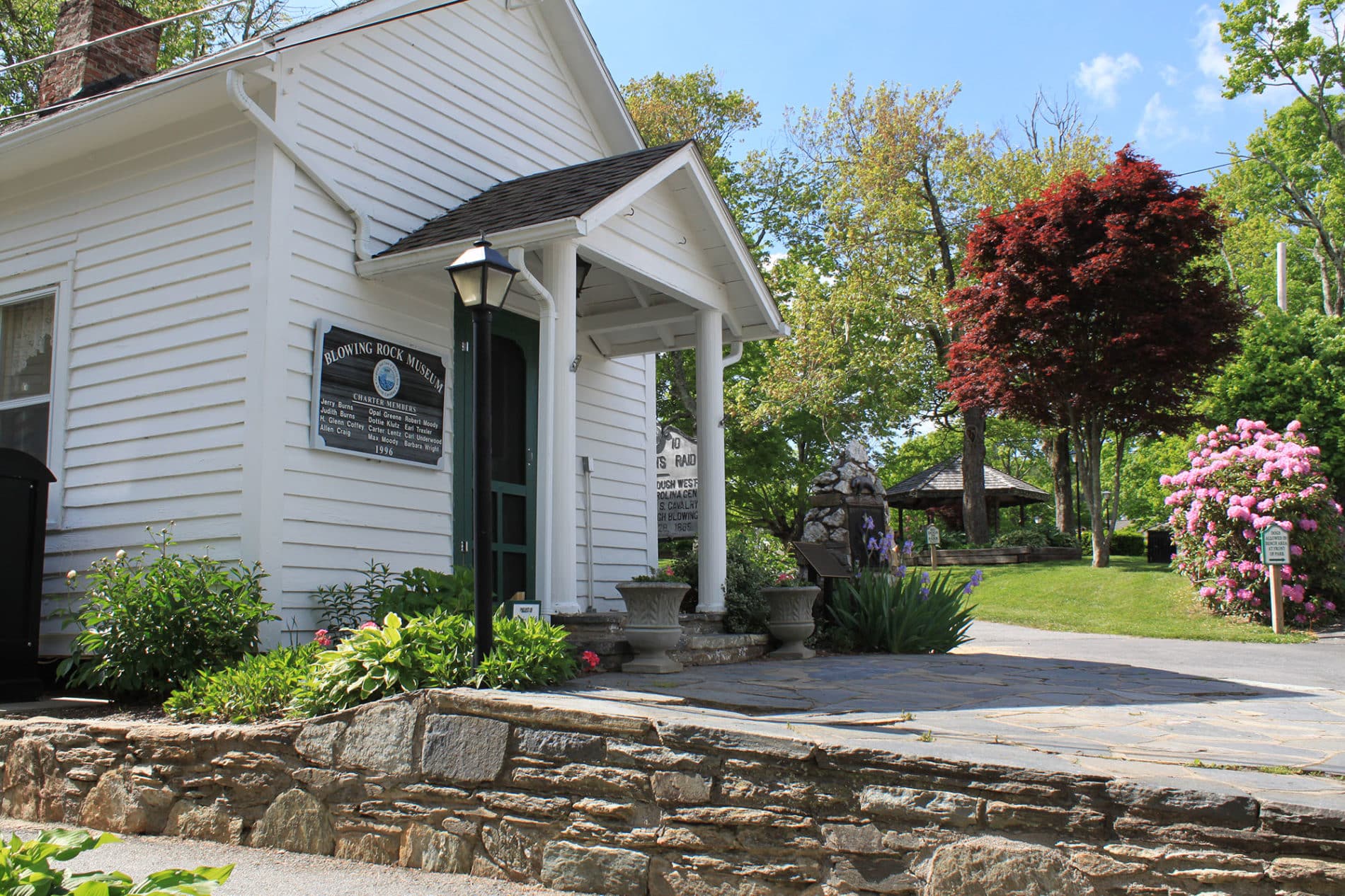
5. The Martin House
1098 Main Street
Built in 1870 as a private residence, this house is also one of the oldest of the town’s buildings. In 1914 it became a boarding house and was home to seasonal residents. From 1936 to 1938, it housed the offices of the Blowing Rock School of English. Margaret Mitchell was a guest lecturer in 1937, the same year she received the Pulitzer Prize for Gone With The Wind.
Turn right onto Laurel Lane.
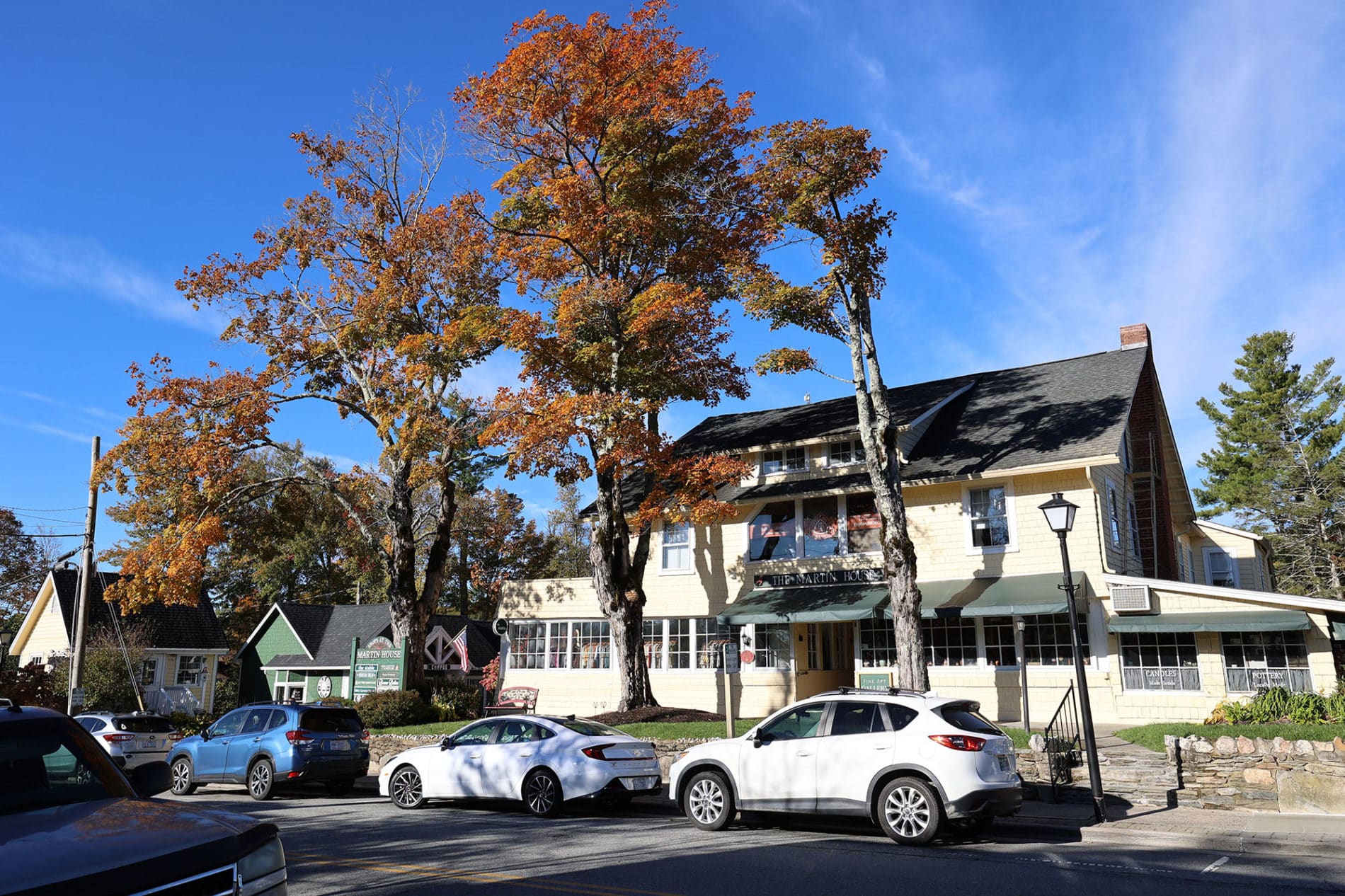
6. Annie Cannon Memorial Gardens/Broyhill Park
Laurel Lane
Broyhill Park was created, with some additions, from the older Mayview Lake area and commemorates the 1989 Centennial of Blowing Rock. Cannon Gardens is the starting point for the Glen Burney Trail (1.5 miles) to two waterfalls. The Glen Burney Trail was built in 1891 as a path along the gorge to Green Park Inn.
Turn left on Wonderland Trail.
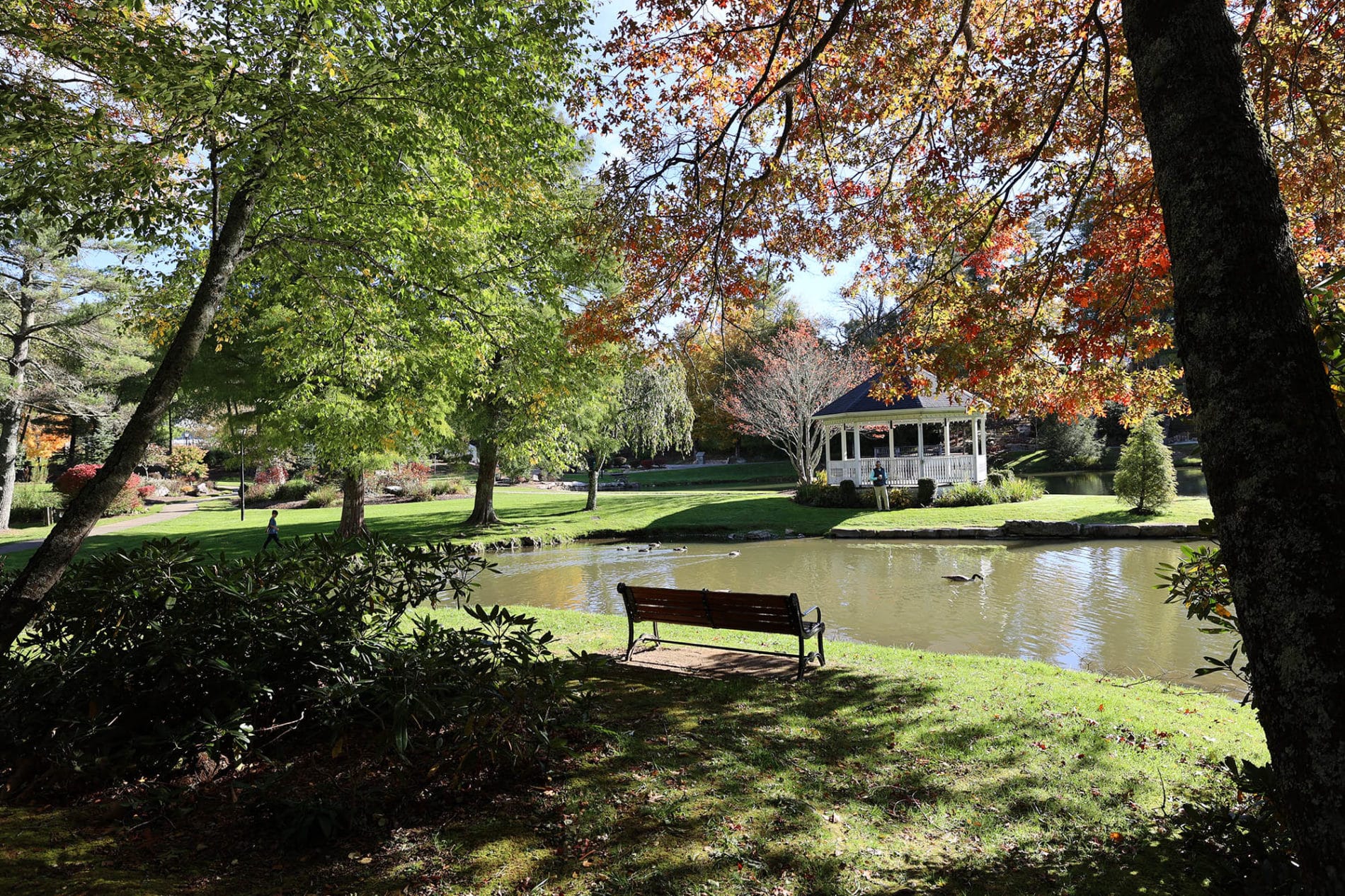
7. Bistro Roca & Antlers Bar
143 Wonderland Trail
Originally built as a drug store for the doctor’s office next door in 1932, the building became a bar and food establishment and is now the oldest continuously serving bar in North Carolina. During Prohibition, booze and bookmaking were run out of the basement.
Retrace your steps back to Main Street and turn right to head south.
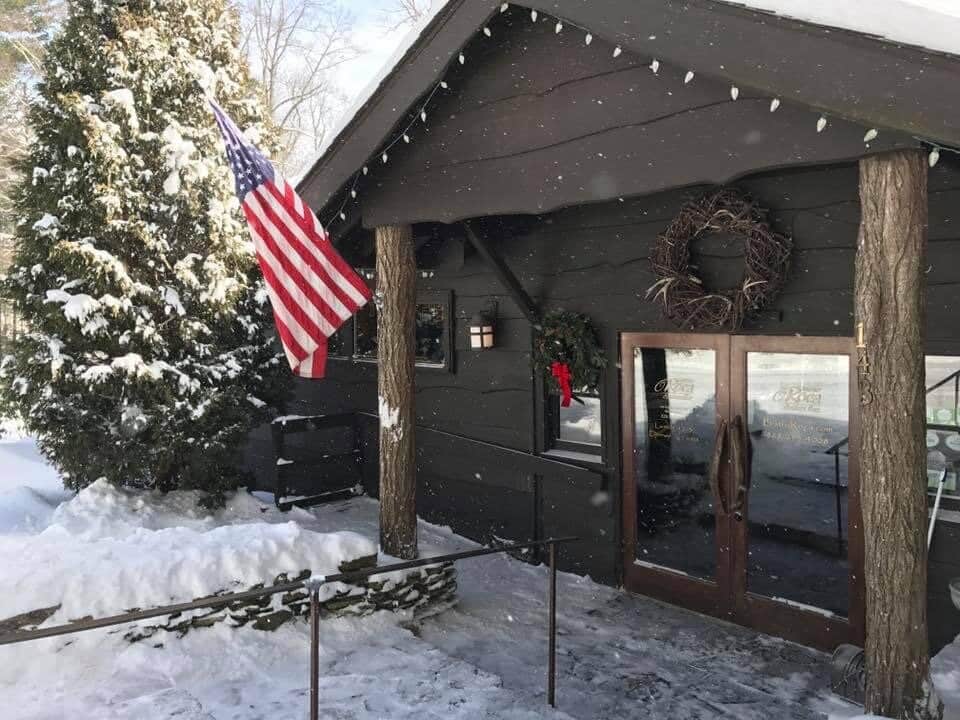
8. Schenck Cottage
(Rumple House)
1200 Main Street
Built in 1886, this was the former summer residence of Major Henry Franklin Schenck. His grandfather built the first cotton mill in the south (1813). Many of the original features are still present including the unusual dormers.
Continue south on Main Street.
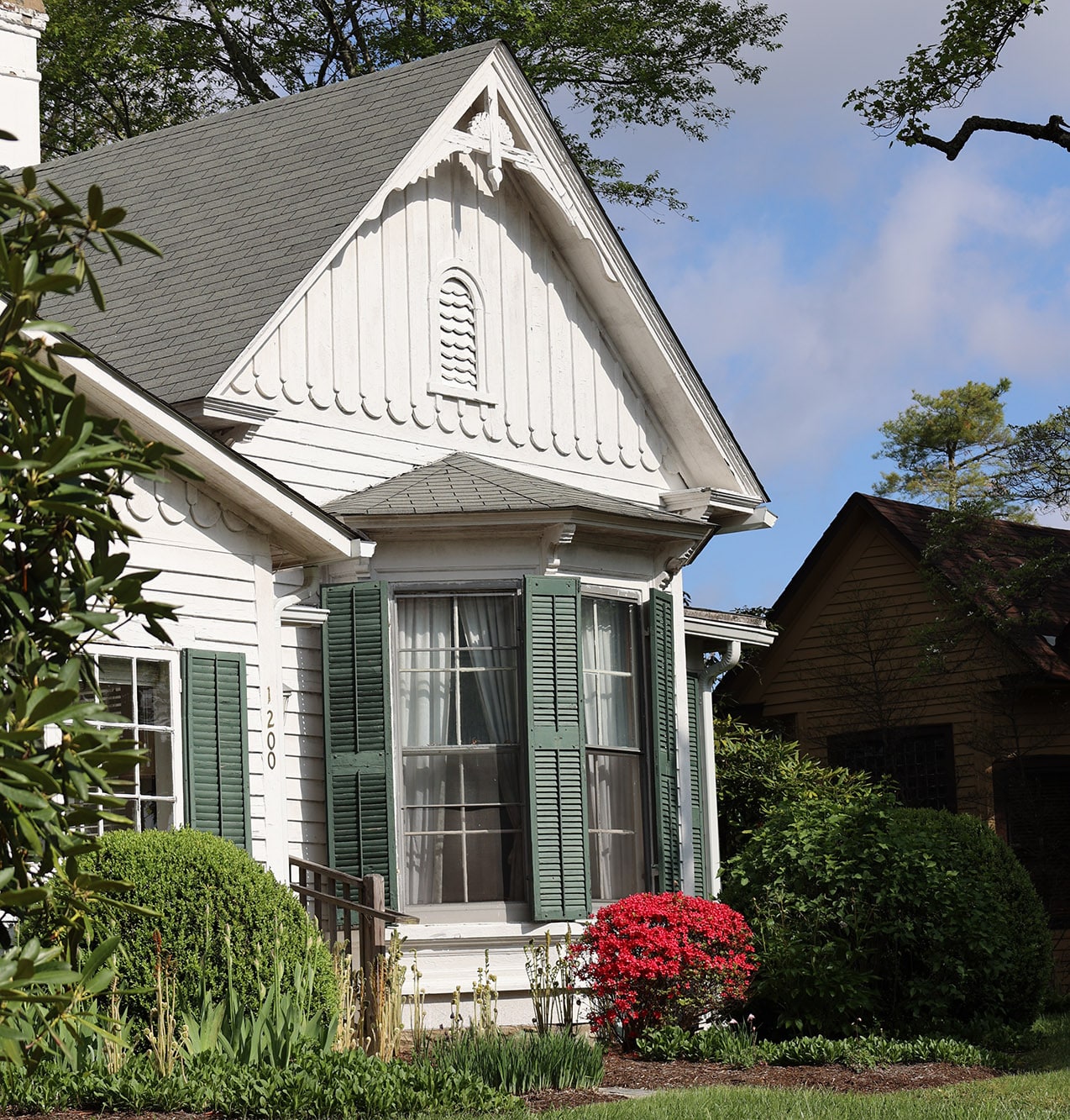
9. Rumple Memorial Presbyterian Church
1218 Main Street
Built in 1906, this was a typical mountain-style rock church. Four stained glass windows commemorate the seasonal ministers, including Rev. Jethro Rumple, who was the first minister and one of our earliest summer residents.
Continue south on Main Street.
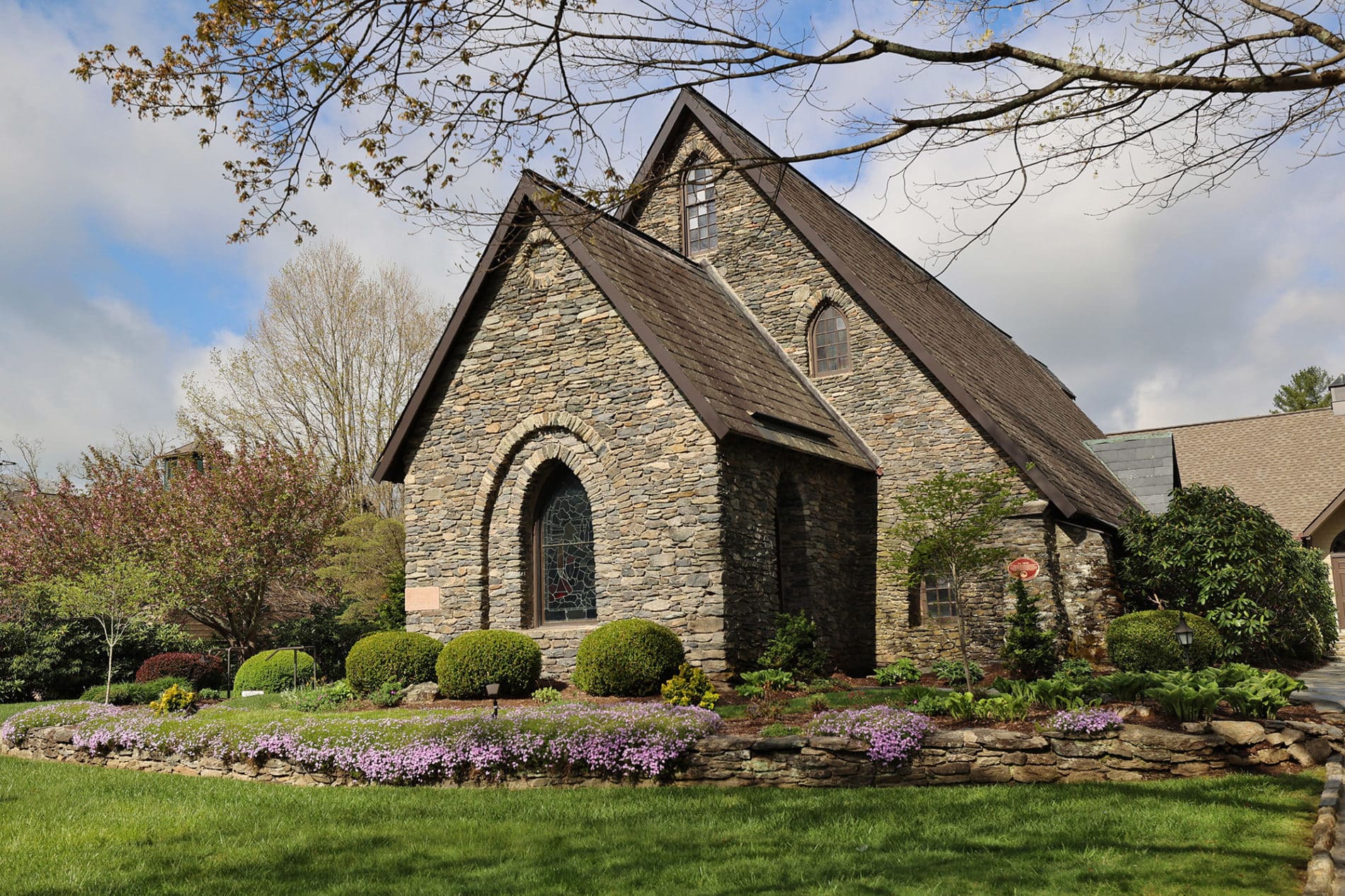
10. Edgewood Cottage
115 Ginny Stevens Lane
The site of the first home and studio of famed local artist Elliott Daingerfield. A sculpture by Brenda Mauney Councill depicting Daingerfield at his easel stands outside on the lawn. Originally constructed c. 1890, it is a fine example of a simple box-board style house built for summer residents of that time. Reconstructed in 2008 by the Blowing Rock Historical Society, the cottage features exhibits inside and is open daily for self-guided tours. It also houses the Artists in Residence program from Memorial Day to Labor Day.
Continue south on Main Street.
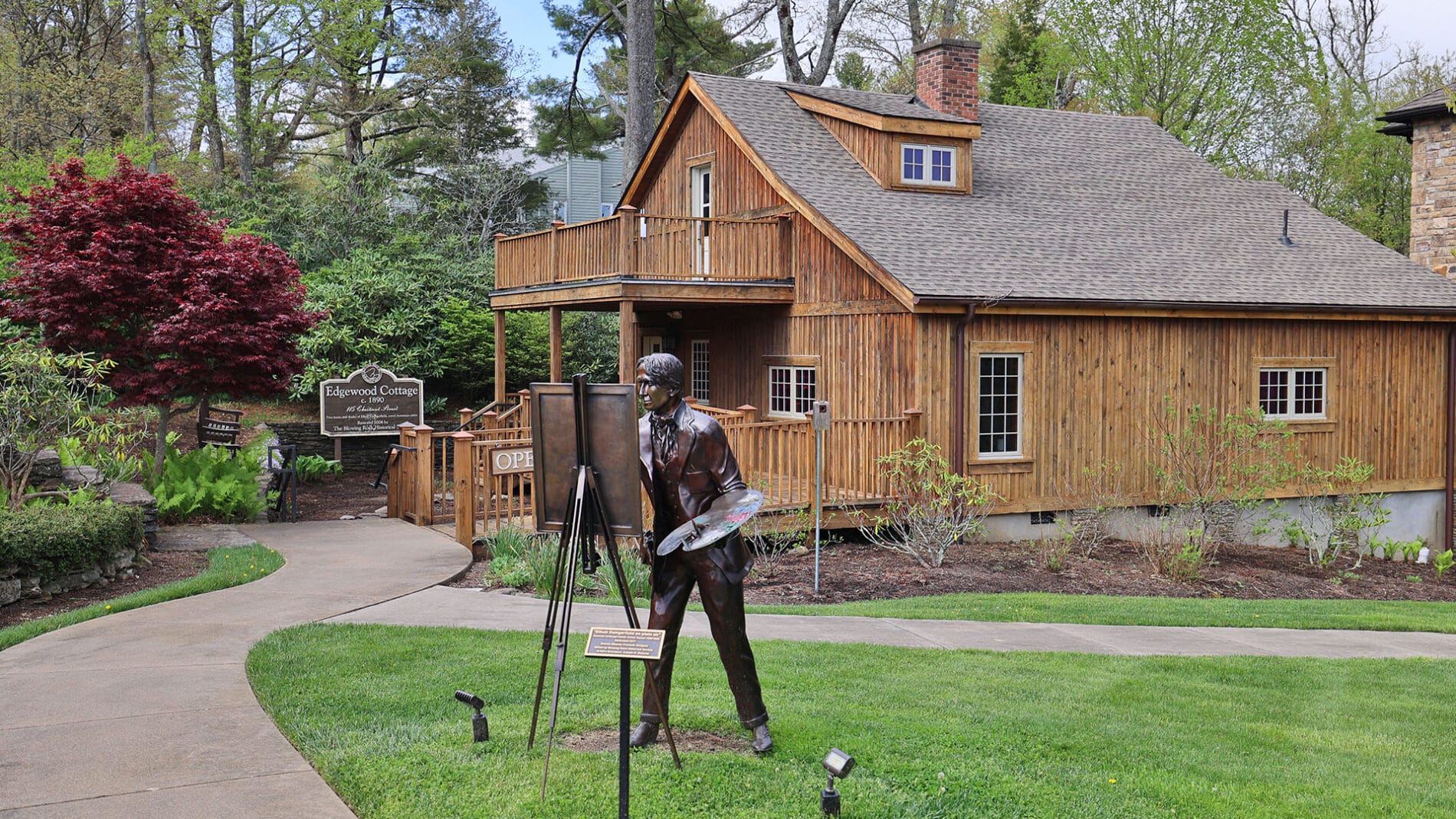
11. Old Coaching Inn
116 Johns River Road
Over 100 years old, this building was an old coaching inn at the turn of the 20th century. Globe Road, the earliest road leading from Lenoir to Blowing Rock, passed by the inn. The building was later owned by the mother of Eli Springs, head of the NY Stock Exchange. *Please note: this building is managed as a vacation rental, so please be courteous and maintain distance from the house when viewing.
Continue south on Main Street.
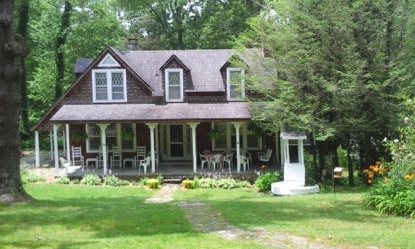
12. Blowing Rock Methodist Church
1314 Main Street
Built in 1904 on land donated by Charles D. Waller, the church served Methodist, Protestant, Jewish, and Catholic pastors and hosted numerous lectures and prominent authors. Dr. Morris Lazaron, one of four chaplains chosen to officiate at the Burial of the Unknown Soldier at Arlington National Cemetery on November 11, 1921, spoke often at the church.
Retrace route back to intersection of Ginny Stevens Lane and Main Street, then cross Main Street.
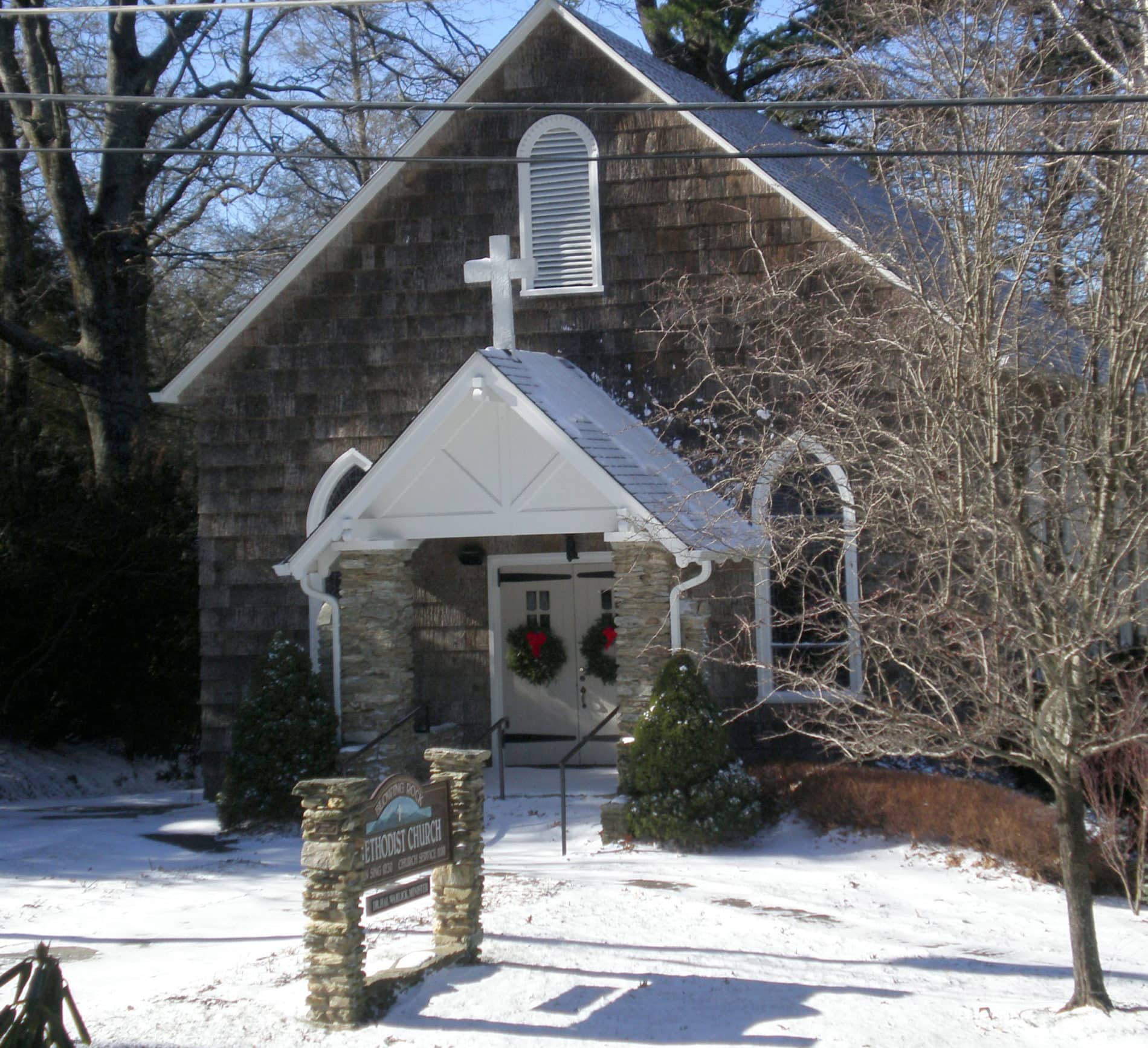
13. St Mary of the Hills Episcopal Church
140 Chestnut Drive
Built in 1918, this picturesque church is constructed of native stone. Elliott Daingerfield’s painting “Madonna of the Hills” hangs behind the altar. The “Mary Garden” to the right of the church contains a sculpture by one of Daingerfield’s daughters, Marjorie Daingerfield.
Continue north on Main Street (back toward the tour starting point).
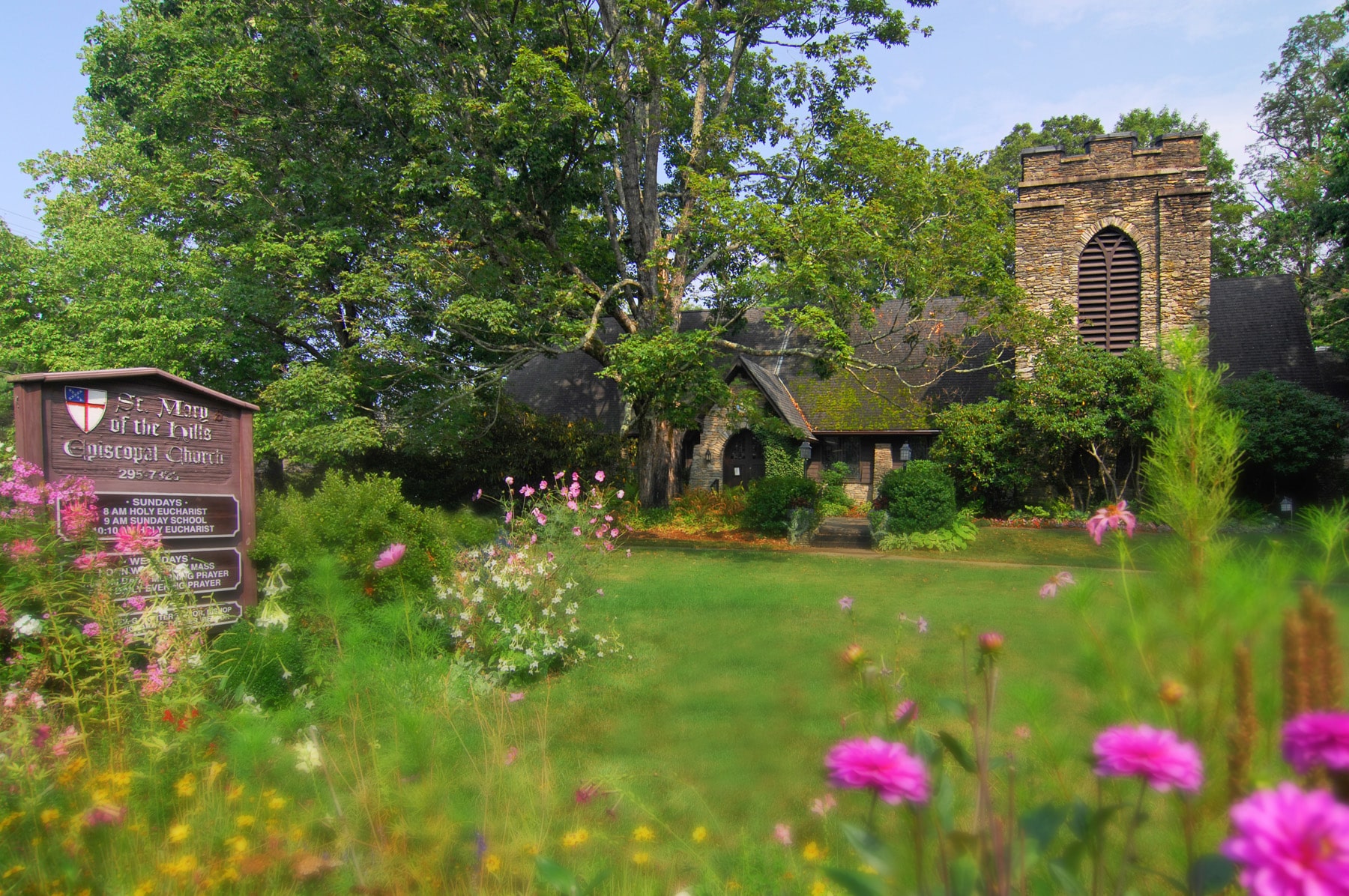
14. Randall Memorial Building
(Village Cafe)
1105 Main Street (follow path beside Kilwin’s Chocolates)
Built in 1907, this building housed a traditional mountain crafts co-op. The Blowing Rock Community Club later used it as the town’s first lending library. It was placed on the National Register in 1991.
Head back to Main Street, crossing Sunset Drive then turning to walk down Sunset Drive.
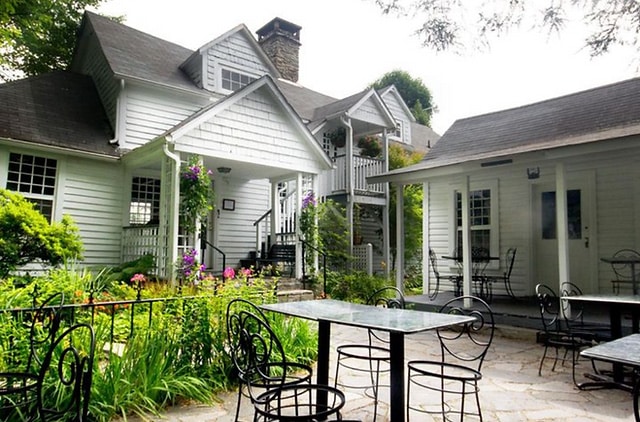
15. Ragged Gardens
(Inn at Ragged Gardens)
203 Sunset Drive
Built between 1896 and 1900, Ragged Gardens originally housed a private residence, a livery stable, servants’ quarters and two other family residences on 11 acres. It later became a summer boarding house.
Turn around to return along Sunset Drive and turn right to walk down Maple Street.
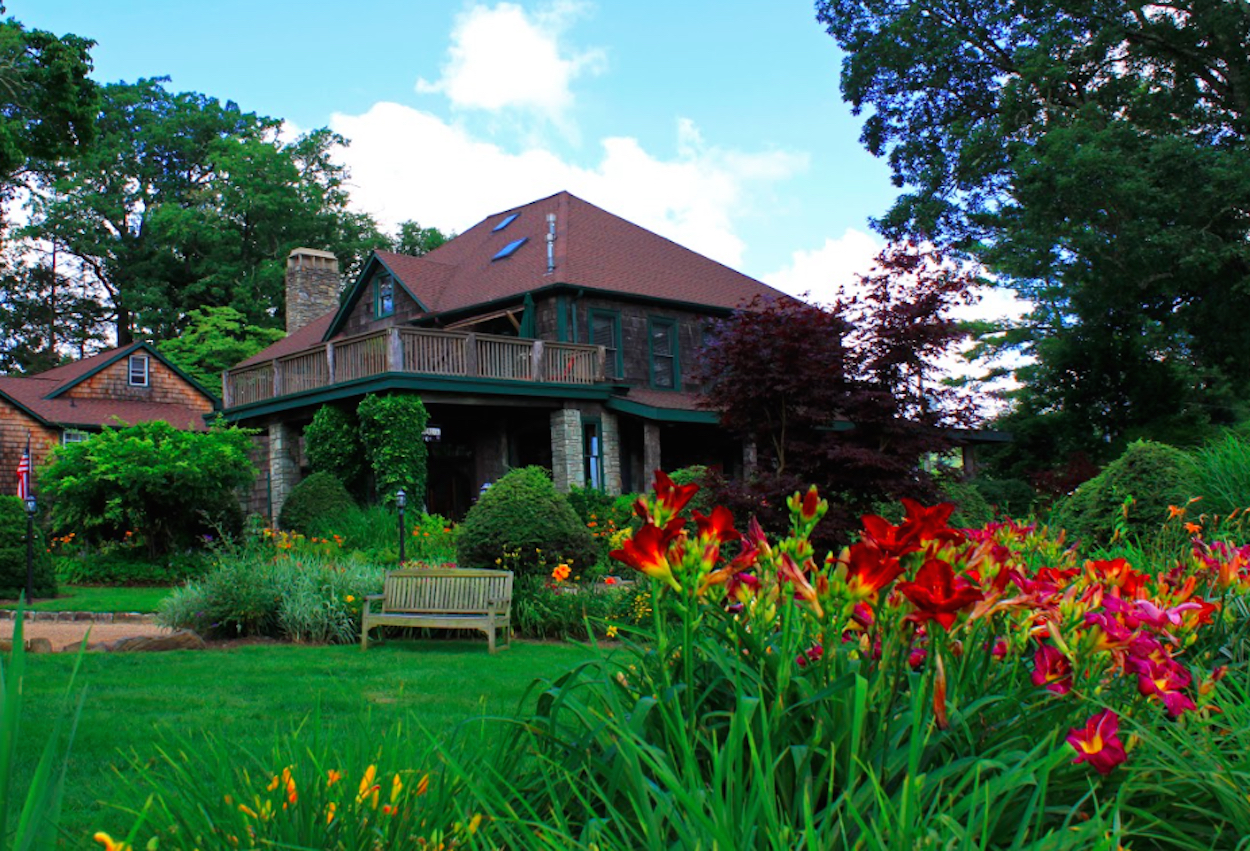
16. The Ice House
140 Maple Street
Built in the late 1920’s, this building is constructed of river, field, and Grandfather Mountain stone, as the town’s ice house. It stored ice from Chetola Lake for the residents at 10 cents for 100 lbs. It has also been a service station, TV repair shop, home of the town newspaper and the ticket office for Blowing Rock Stage Company. It’s currently a hair salon.
Continue along Maple Street toward Main Street.
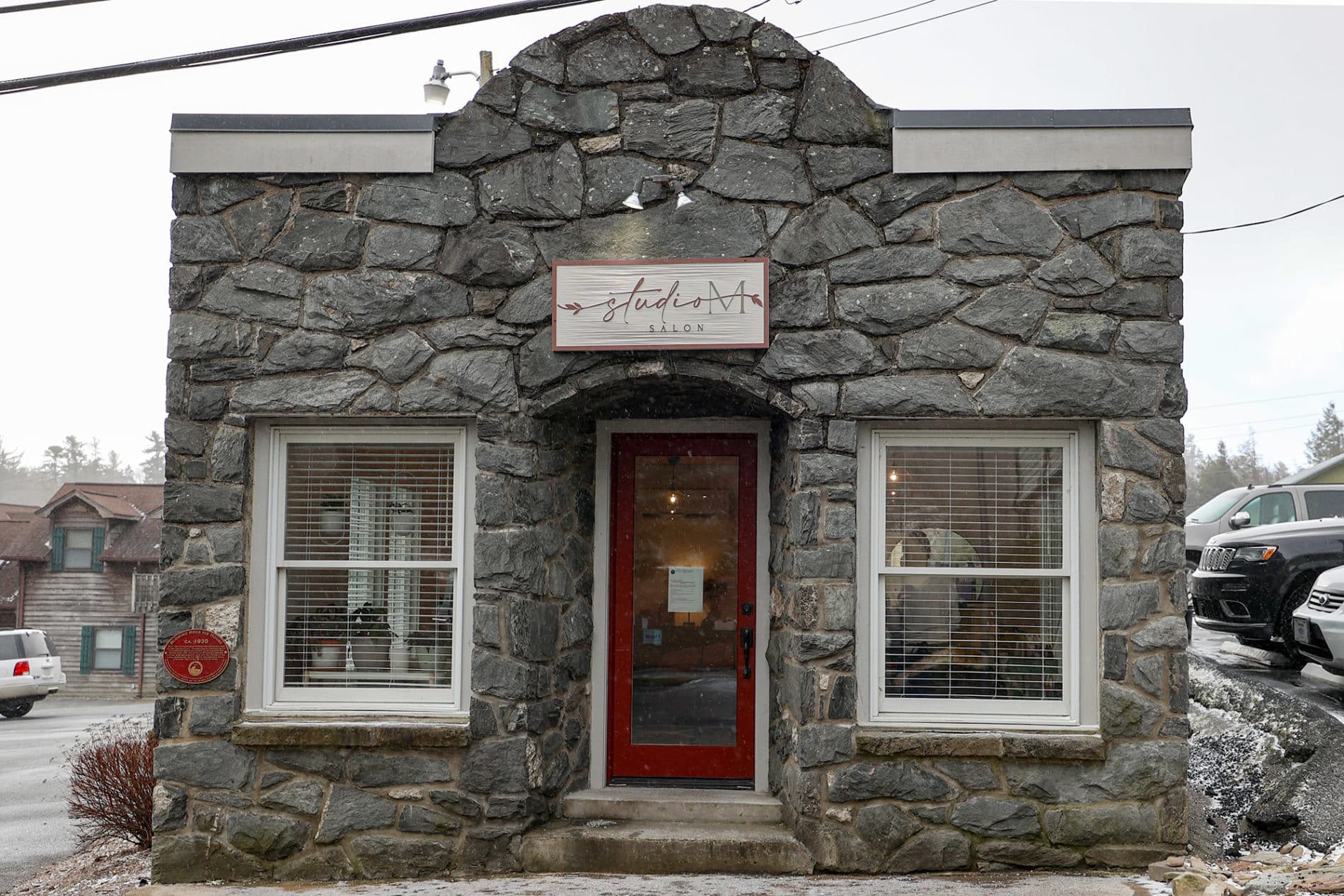
17. The Purple Cottage
(Take Heart)
1009 Main Street
Built in the early 1900’s, this building served as the first Town Hall and Chamber of Commerce. It has since housed a barber shop, an insurance agency, and retail stores among other things. It was faithfully reconstructed in 2021-2022 following a fire.
Return to Main Street, head north toward the stoplight at the 221 intersection.
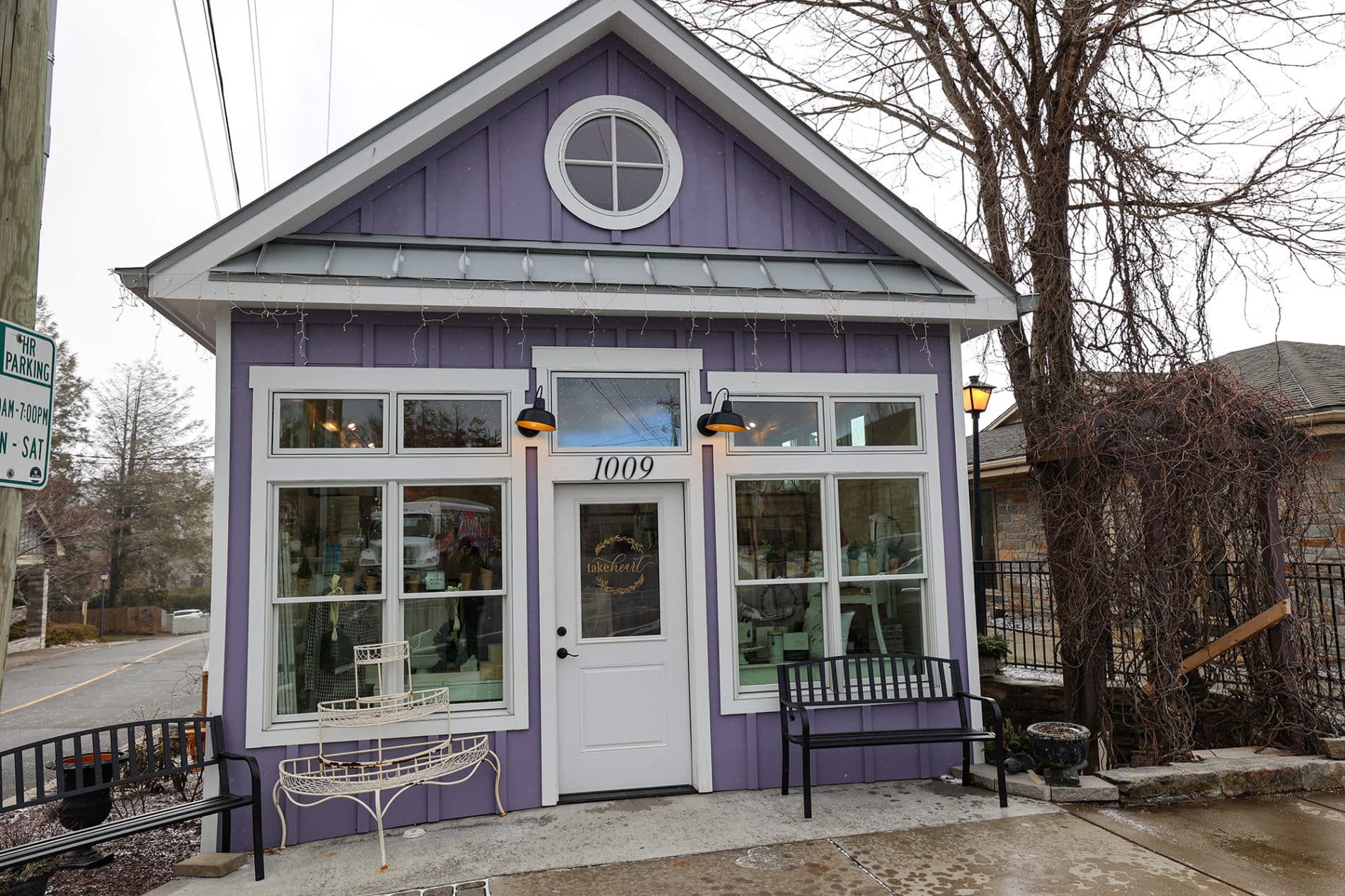
18. The Lentz Building
(Footsloggers)
921 Main Street
Built in 1918, this stone building and the adjacent building from the 1940’s are typical of early Blowing Rock architecture. It was originally a service station, apartment building, and the first bus station in town.
Cross Main Street at the stoplight crosswalk, then follow Main Street back toward Park Avenue.
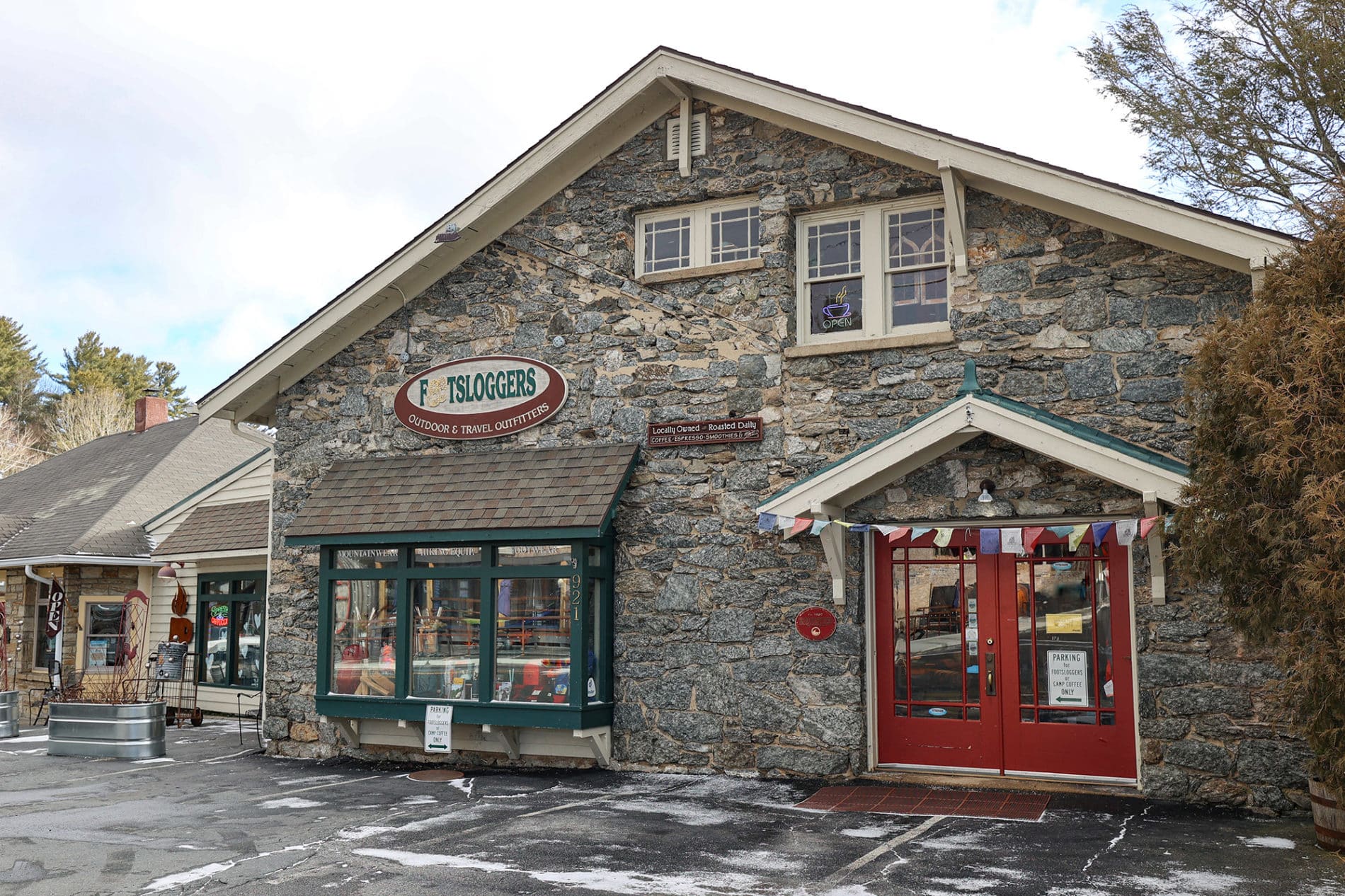
19. Reinhardt Building
(Blue Deer on Main, The Bee & the Boxwood)
960 Main Street
Built in 1924 and constructed of native river and field rock, the exterior has much variety. Located in the wall between the two doors is Blowing Rock’s first geodetic survey benchmark giving the official elevation as 3,579 feet in 1933.
Continue south on Main Street.
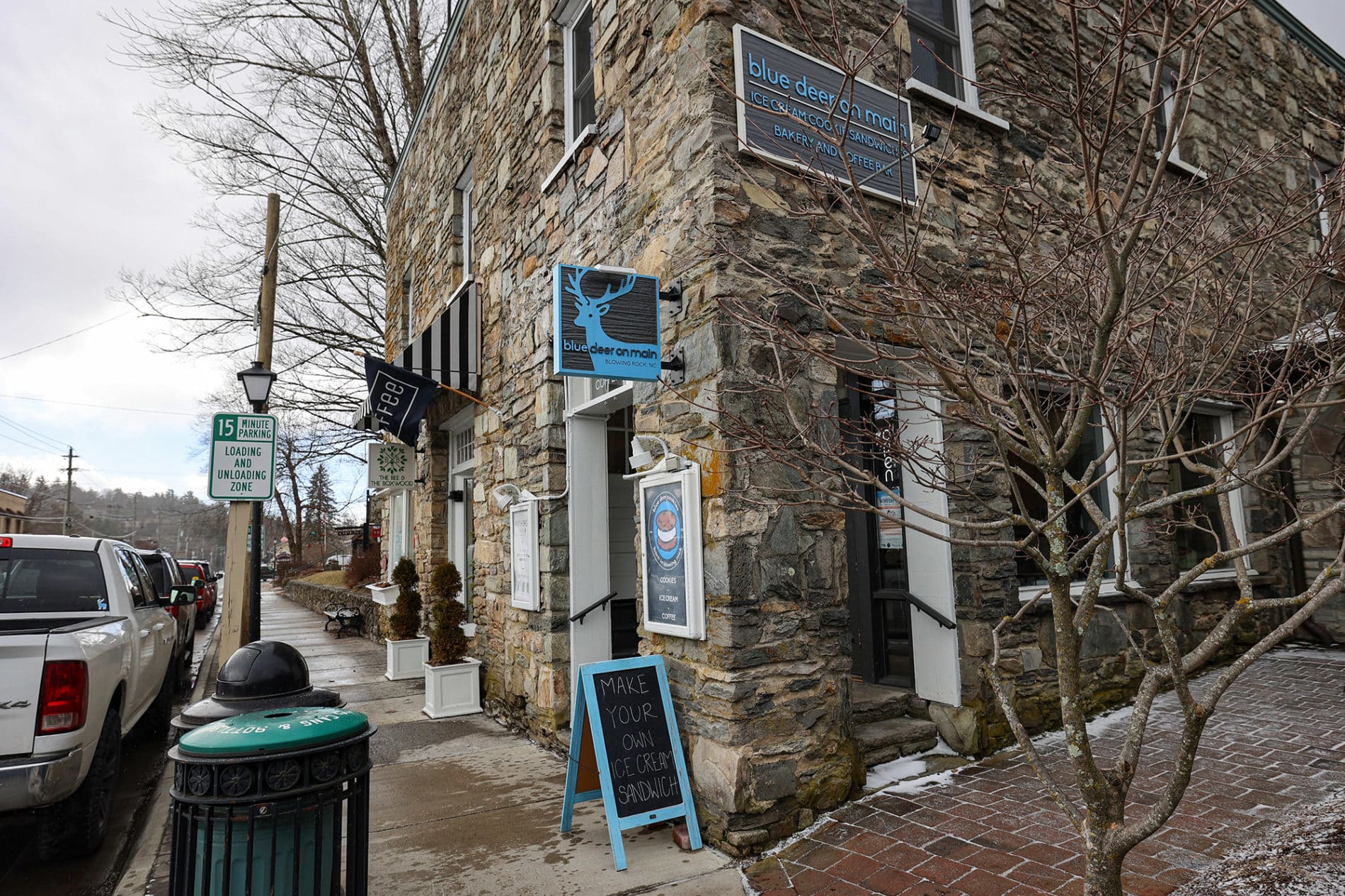
20. Original First Baptist Church
(The Last Straw)
978 Main Street
Built in 1924, this was the town’s first Baptist Church and was covered in chestnut bark siding. Chestnut paneling remains in the interior along the alcoves which accommodated the choirs. It is constructed in the shape of a cross with round corners “so the devil could hide in no corner.”
This is the final location on this tour.
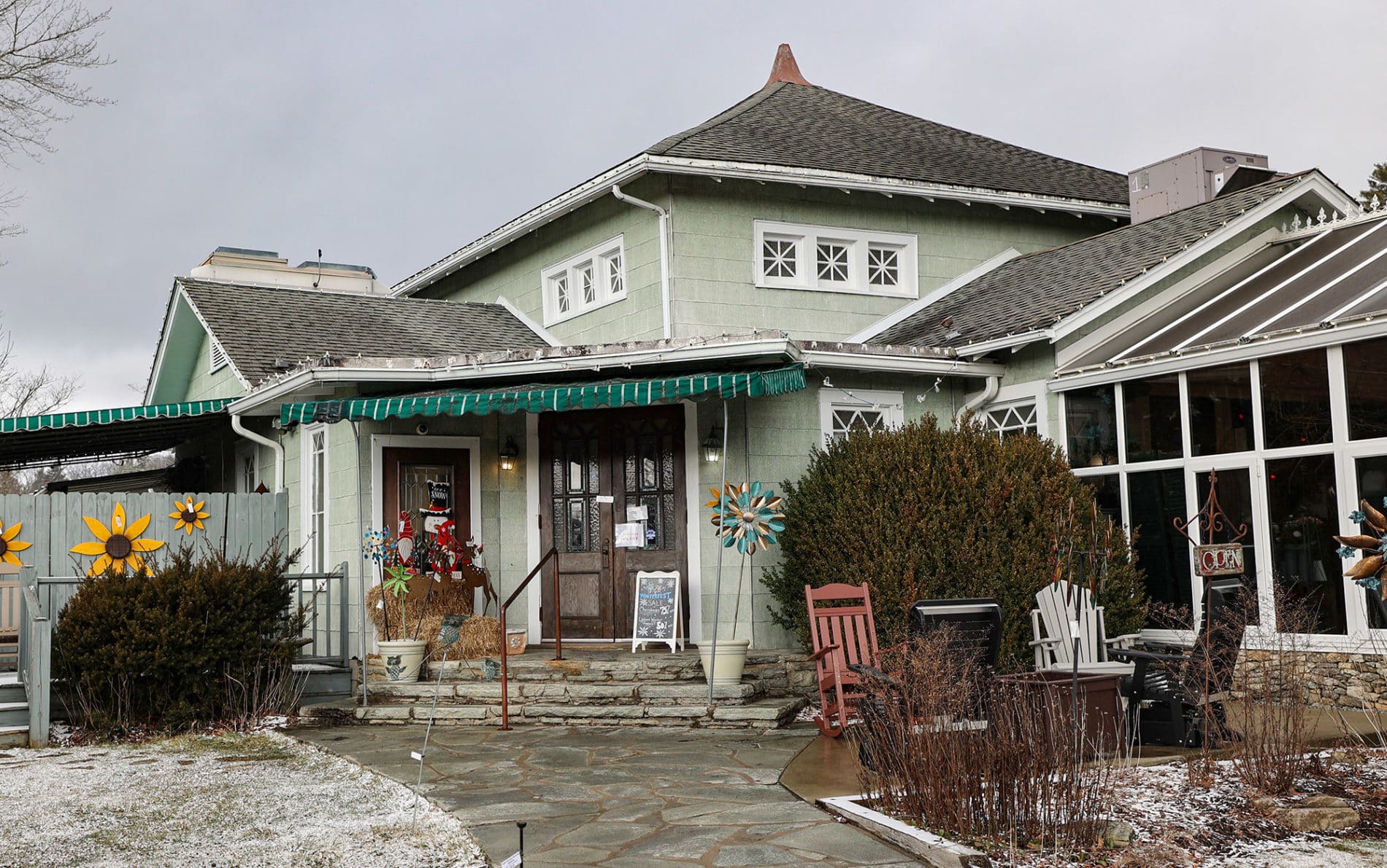
Interested in more? The Blowing Rock Historical Society’s Red Marker Program recognizes over 40 historic buildings and locations in Blowing Rock. They also have an interactive walking tour of 11 Red Marker properties that offers even more detail and historical context on several of the places featured here.
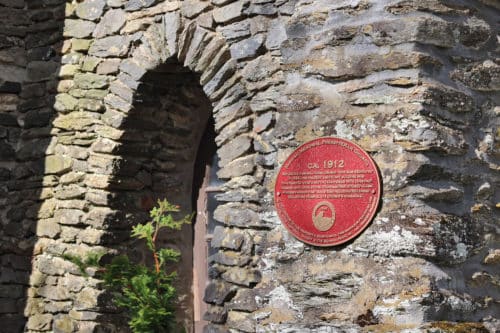
Plus! Blowing Rock now has a History Walk, built by the Blowing Rock Historical Society and the Village Foundation of Blowing Rock! The ribbon was cut on the Walk in 2023, and it features beautiful, commemorative plaques along Laurel Lane and through Broyhill Park.
